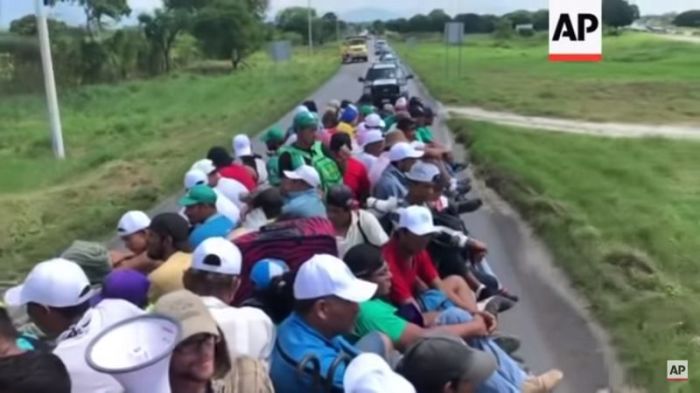Trump admin. claims reuniting migrant families 'could be traumatic to the children'

The Trump administration claimed that reuniting migrant families that were separated at the U.S.-Mexico border could be traumatic to the children who the administration separated from their parents.
Reuniting the thousands of children with their parents may not be "within the realm of the possible," the Trump administration claimed in court documents filed late Friday.
In a statement from the Office of Refugee Resettlement, the federal agency said reuniting the children separated from their families could "destabilize the permanency of [the children's] existing home environment, and could be traumatic to the children" to remove them from sponsor homes they placed following separation.
Jallyn Sualog, deputy director in the refugee resettlement office, said in Friday's court filing that it would take up to eight hours to review each of the 47,083 cases between July 1, 2017 and a June 2018 court order from a San Diego federal judge saying children in government custody must be reunited with their parents. Doing so would "substantially imperil" operation without extensive hiring of more staff, Sualog said.
The court filings come as a result of a lawsuit from the ACLU scheduled to head back to court later this month. A hearing is set for Feb. 21.
"The Trump administration's response is a shocking concession that it can't easily find thousands of children it ripped from parents, and doesn't even think it's worth the time to locate each of them," said ACLU attorney Lee Gelernt, who is leading the suit.
"The administration also doesn't dispute that separations are ongoing in significant numbers."
The issue of separating children from their families came to a head last summer following a "zero tolerance" policy which began last spring.
Then-Attorney General Jeff Sessions said at the time that anyone who crossed the border illegally would be criminally prosecuted. The result was a notable increase in family separations and immense pushback ensued, particularly as photos and footage of emotionally distressed children circulated around the Internet.
"The vast majority of children are released to relatives, but many of them are not parents. Of children released to sponsors in the 2017 fiscal year, 49 percent went to parents, 41 percent to close relatives like an aunt, uncle, grandparent or adult sibling and 10 percent to distant relatives, family friends and others," the Associated Press reported Saturday.
Separating families at the border has long been allowed under federal law in specific situations, including when there are serious criminal charges against a parent, or when the children are ill or if their welfare is endangered.
The Department of Health and Human Services’ assistant inspector general for evaluations, Ann Maxwell, said in January that the number of separated children was larger than the 2,737 figure the government listed in court documents. Maxwell said her staff estimates the number to be in the thousands but could not give an exact number.




























